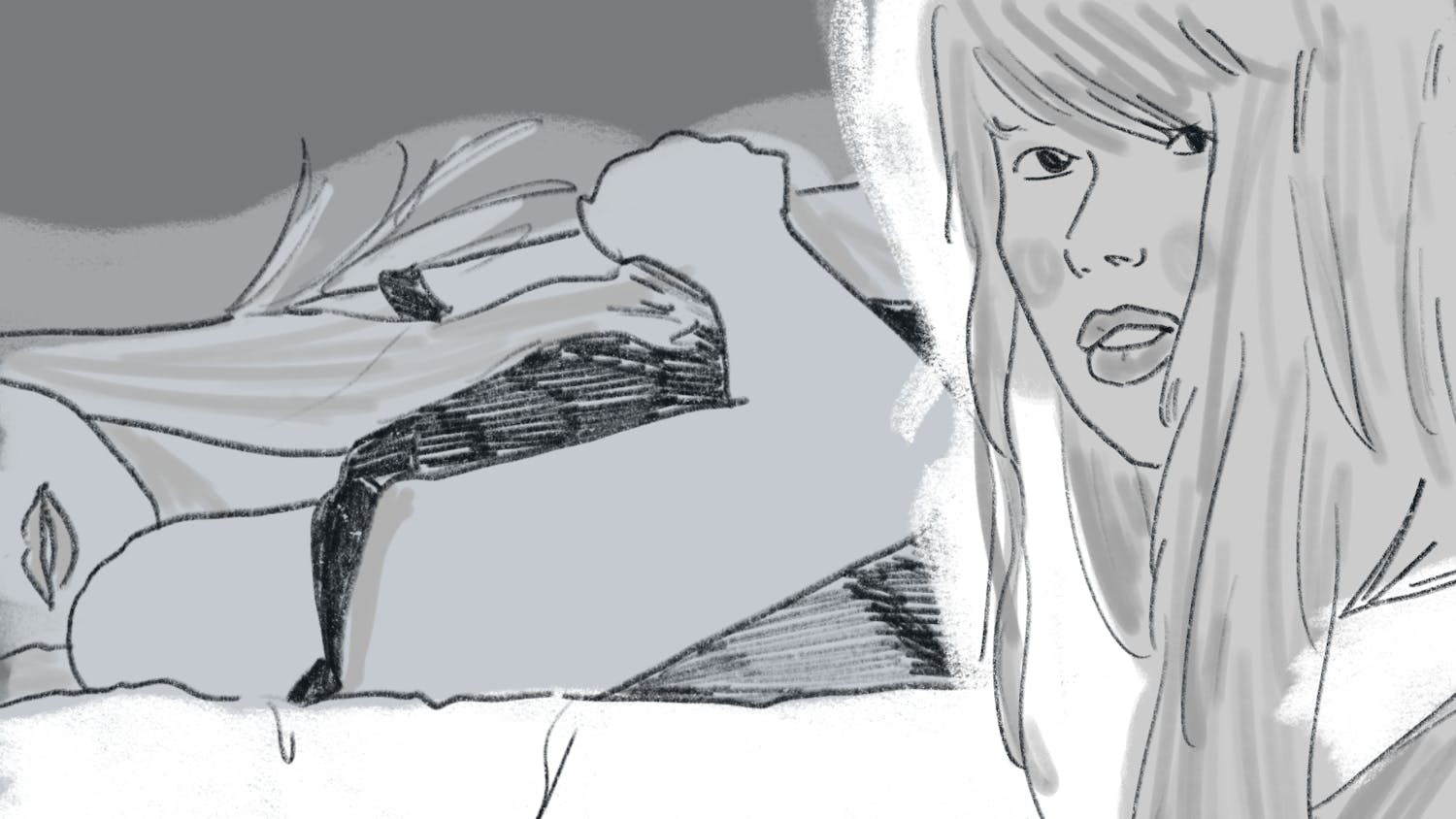At the Field Day Festival in Giants Stadium on June 7, after the rain had cleared, Radiohead had the temerity to play "Sit Down. Stand Up," a new song that concludes with dozens of mantra-like repetitions of the words "the raindrops."
The skies did not, in fact, open up again, but if they had, it would have been a fitting metaphor for the power the band is capable of exerting over the music world these days. In a time when one of the biggest compliments you can give to a new band is to compare them to Radiohead, the band's name is synonymous with innovation.
Their sixth album, "Hail to the Thief," does not represent a drastically new sound, but neither is it a point of creative stagnation.
On the contrary, this is some of the most refined work of Radiohead's career, incorporating both the guitar-based experimentation of 1997's "OK Computer" and the more electronic sounds of 2000's "Kid A" and 2001's "Amnesiac."
Even fans of "The Bends," the 1995 album that for many listeners represented the acme of guitar-driven Brit-rock, will find something to cherish in tracks like "Go to Sleep," the band's most immediately familiar song in years.
Like "High and Dry" or "Fake Plastic Trees," it begins as an acoustic-guitar-driven anthem. The difference is that since "The Bends," the band has no longer been willing to let their songs stop there, instead adding chiming electric guitars and caterwauling vocals to the mix.
On two tracks from "Hail to the Thief," "Backdrifts" and "The Gloaming," the burbling synthesizers and waves of static that permeated much of "Kid A" and "Amnesiac" return. But unlike some of the material from those albums, these songs have a cohesive structure that makes the electronic elements seem more incidental than integral.
From "Karma Police" to "Pyramid Song," piano-based ballads have often been among the highlights of Radiohead's albums, and the trend continues on "Hail to the Thief."
"Sail to the Moon" and "We Suck Young Blood" have the warm, plodding creepiness of "Pyramid Song, while "A Punchup at a Wedding" carries a definite jazz influence. Yorke's piano moves the song along at a steady head-nodding pace, even as his vocals hurl vitriol at a "hypocrite opportunist bully in a china shop."
Three of the strongest songs on the album, though, have little in common with each other or the rest of the album. "There There," the album's first single, is a brilliant, lurching affair backed by Jonny Greenwood's jangling guitars as Yorke sings refrains like "Just 'cause you feel it doesn't mean it's there" and "We are accidents waiting to happen."
"There There" leads directly into "I Will," a spare, two-minute exercise in vocal harmony guaranteed to produce goosebumps.
The triumvirate is completed by "A Wolf at the Door," an uncharacteristically verbose rant that closes the album. Hearkening back to a time when it was possible to sing along with Radiohead lyrics, the song chronicles a narrator's paranoid delusions: "I keep the wolf from the door, but he calls me up, calls me on the phone, tells me all the ways that he's gonna mess me up."
From the album title, a reference to President Bush's controversial victory in the 2000 election, many were led to expect "Hail to the Thief" would be an overtly political album. In reality, Yorke's lyrics are as difficult to pigeonhole as ever.
Sure, the album's opening lines could be interpreted as a profession of disgust for the modern world: "Are you such a dreamer/To put the world to rights?/I'll stay home forever/Where two and two always makes up five."
But soon the disc veers into far more typically obscure lyrical territory, filled with the recurring themes of alienation and paranoia that have marked much of Radiohead's work since "OK Computer."
B the time Yorke mutters "I wish you'd get up, go over, get up, go over and turn this tape off" in the last verse of "A Wolf at the Door," one thing is clear: Radiohead is no longer "experimenting."
"Hail to the Thief" is the sound of a band that has found its medium.
There may be new ground to cover, new instrumentation to explore, new themes to address, but the band sounds eminently comfortable and confident now no matter where they go.



